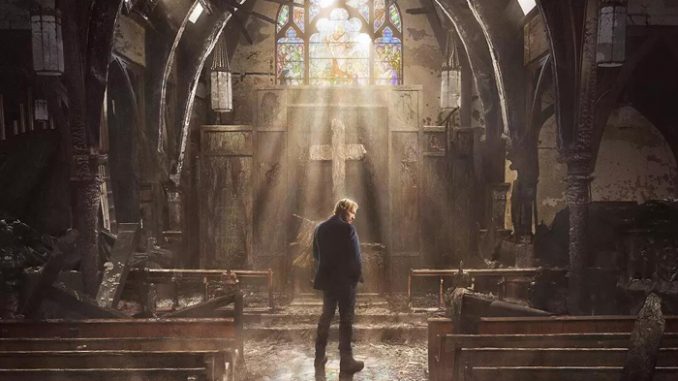
“God’s Not Dead: A Light in the Darkness” seems as if it’s going to tell another tale about the culture war between secularists and evangelicals. After all, it revolves around Dave’s fight to rescue his church from those who believe he’s a divisive influence on campus. At the beginning of the film, he says in a TV interview, “Truth is a person: a person of Jesus Christ. It’s one of the most important facts.” This sentence angered many people of Hadley. In another interview, later on, Dave argues, “People still have a right, a fundamental human right, to express their beliefs—even at a state university.”
Much of the movie revolves around defending that right. But as the story progresses, we see that Dave’s increasingly vitriolic crusade for justice is actually damaging others. He gets into a physical altercation with one man. He threatens someone else. He suggests that the person who causes the church fire should get the maximum prison sentence. Dave’s passion for justice slowly morphs into a toxic demand for vengeance.

In a conversation with another pastor, Increasingly bitter Dave asks, ” When is it our right to fight? I’m tired of being pushed around. I’m tired of turning the other cheek… And I think it’s time that Christians stand up for themselves.”
The pastor responds, “People were drawn to Jesus because of His love, His patience, and kindness… We cannot respond to hate with more hate. And don’t forget, we are called to be a light in the darkness.”

That conversation is a pivotal moment for Dave as he realizes that grace, mercy, and forgiveness are actually more important than winning his legal battle against the university. At a contentious rally attended by protesters from both sides of the conflict, Dave becomes a unifying influence, saying, “Please, let’s stop the shouting at each other and start listening… It’s the only way things will get better.” After he has everyone in the crowd light candles, he says, “Let these candle represent peace, hope, unity, and love.”

Woven throughout Dave’s story is that of Keaton, a young woman who’s grown up in faith, but who is battling to hang on to it as she struggles to hear God’s voice. Her boyfriend, Adam, belittles her beliefs, as do some of her other non-Christian friends. She prays, “I can barely hear you anymore. Are you even there? I hope you are. I feel so lost, God.” Keaton eventually breaks off her relationship with Adam because of their spiritual differences, which enrages Adam.
Later, they reconnect again, and Adam confides that his antipathy for Christianity stems from painful struggles in his past: “Do you know why my mom divorced my dad? He used to beat her. I was 9 when she left. You know what church did? They called her a sinner. They said if she married again, she’d be an adulterer. They humiliated her. What I remember most about that time is the sound of my mother crying herself to sleep… So, yeah, I get angry sometimes.”

Despite those deep wounds, Adam eventually comes to a place where he longs to experience God’s forgiveness for his anger and the destructive choices he’s made. On a parallel course, Pearce and David engage in multiple conversations, too, about Pearce deep doubts and past pains that propelled him away from the faith.
Keaton, for her part, articulates the importance of the connection between what we say we believe and how we actually behave: “If being a Christian doesn’t affect the way we act, then how do we know that our values and beliefs are any more valid than anyone else?” She also confronts Dave, saying, “Do you want to know why my generation is leaving the church? Because the whole world knows what the church is against, but it’s getting harder and harder to know what it’s for.”

Throughout the film, characters quote various passages of Scripture, and a couple of scenes take place in churches. We see several different people reading their Bibles.

Leave a Reply